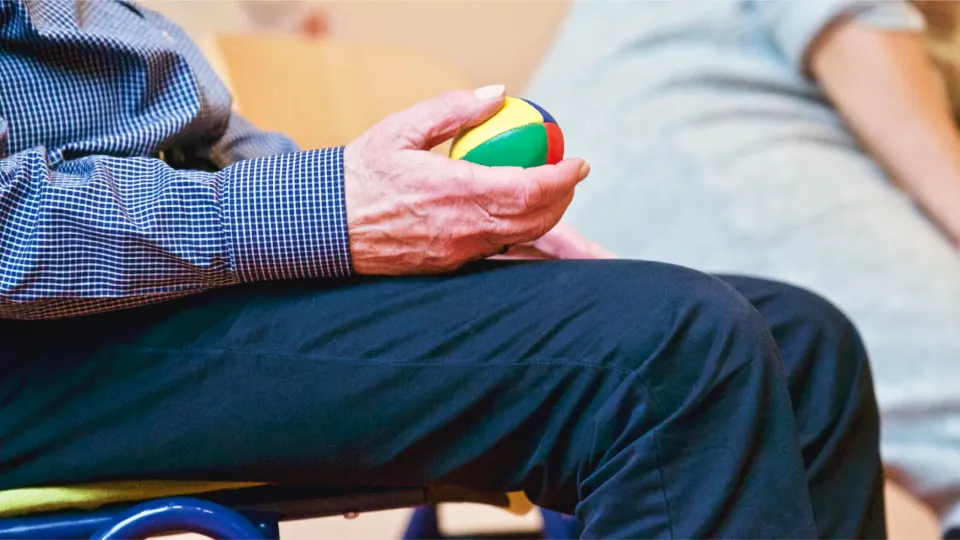We require approval in order to function as humans. We require a sense of acceptance and love. Given how much dementia has affected a person’s perception of their surroundings, this need does not go away. Actually, because their entire world has been upended, they may feel a greater need for acceptance. It has been demonstrated that validation therapy is effective in improving the lives of people who experience the devastating effects of Alzheimer’s and dementia.
An approach to talking to dementia sufferers that emphasizes listening and empathy is called validation therapy. The goal of this type of therapy is to accept the person, even if what they are saying is untrue. The dementia patient may feel more respected and heard as a result.
This article explains the definition of validation therapy as well as its objectives and advantages.
What is Validation Therapy?
This therapy may not be well-known to many of you. What exactly is validation therapy then? This type of therapy was developed by Naomi Feil. Validation therapy is a unique form of therapy that involves listening to elderly seniors with dementia, connecting with them through empathy, and providing dignified care in the last stages of their lives. The main goals of validation therapy are to show seniors that you respect them and to make them feel heard and recognized rather than ignored.
For those who provide care for them, elderly people with dementia or Alzheimer’s disease may act in an illogical and unreasonable manner. Many may try to help the senior recognize or correct that behavior. However, rather than focusing on the content of a conversation or action, validation therapy emphasizes communicating in a way that addresses the emotion of the action or conversation. Instead of attempting to force the aging senior to return to reality, it allows family members or caregivers to enter their reality.

Seniors with dementia who are agitated may find validation therapy helpful in calming them down and learning more about their true feelings. Seniors in pain may feel heard and not dismissed as a result. Validation therapy has some undeniable advantages, despite the fact that it necessitates a lot of patience and work.
The key concepts of Validation Therapy include:
- Older people may express past struggles in veiled ways as they struggle to find closure on their unfinished business or unresolved issues. This could manifest as them retreating into themselves, relying on movements rather than words or totally shutting out the world around them.
- You must actively listen to them with empathy and respect, making them feel valued and respected rather than dismissed, criticized, or judged, in order to assist them in resolving these past problems or struggles.
The Benefits of Validation Therapy
Slowing Down the Deterioration of the Disease
Many aging-related conditions cannot be prevented, but validation therapy can slow them. If a senior’s struggle is validated, and if they are treated as people rather than as residents, or like children, then validation therapy slows their deterioration. There will be more good days as a result, in addition to being able to endure bad days more easily than would otherwise be the case.
Feeling Valued
As you get older, you can do fewer things than you used to. And it’s challenging to avoid feeling like a burden or a failure when you can’t carry out simple tasks like carrying your own groceries or driving yourself, or when you experience other age-appropriate issues. Even though they may be battling serious illnesses like Alzheimer’s, dementia, and other conditions, validation therapy helps seniors feel valued and lets them maintain their dignity.
Giving Encouragement
A person is more likely to withdraw if they believe they won’t be heard or that they are a burden rather than a valued member of the group. Pacing, agitation, and frustration result from this, and it can make a number of medical conditions worse. But they are more likely to open up to you when you meet them with validation. Not only that, but they are more likely to feel comfortable approaching you, which can make a serious difference in how their condition progresses.

The Methods to Apply Validation Therapy
Here are some basic tips to help you communicate with your loved one through validation therapy:
- Maintain eye contact. Hold their hand or stroke their cheek if they enjoy the physical touch to further express your love and commitment to them. Respecting boundaries is essential, though.
- Avoid arguing or defending yourself. Your loved one’s agitation will only increase as a result of these actions.
- Use a loving tone. Keep your voice down.
- Keep your loved one in mind. Focus on your loved one’s emotional state rather than your own feelings. Try to pinpoint the underlying causes of their agitation by paying close attention and asking questions.
With your elderly loved one, we hope that you can successfully use these pointers to implement validation therapy. Our skilled staff at Caring Senior Service is made up of extremely knowledgeable, affable, and dependable professionals who take pride in assisting your loved ones in managing their daily activities.
Other Tips
- Continue to make eye contact. They’ll feel more safe and loved if you look into their eyes.
- A wonderful tool is music. Songs and music frequently take us to different times and places. Consider the number of occasions a song brings up memories of other people, places, or occasions. Non-verbal people with dementia can even sing songs they once knew when they are otherwise unable to speak.
- With them, don’t argue. Arguing with a confused person is rarely productive and leads to frustration and agitation.
- Use a loving, lucid, low (but not quiet) voice. Someone with hearing loss may have trouble understanding high-pitched and soft tones. Don’t talk louder than necessary just because they have hearing loss because doing so can come across as harsh or angry.
Summary
By empowering empathy and respect, validation therapy can help people with dementia feel supported and understood. Validation therapy restores some of the dignity that dementia has taken away from them. Ideally, it can also bring them peace as they approach death.
FAQs
What Are the 4 Stages of Validation Therapy?
Within the context of validation therapy, the four stages of behavior associated with dementia include misorientation, time confusion, repetitive motion, and vegetative. These stages were largely based on “observation” (Feil 1993; Jones 1997). Each stage is linked to particular behavioral and cognitive symptoms.
What is the Objective for Validation Therapy?
By emphasizing the emotional content of a person’s words or expressions, validation therapy aims to help patients accept the reality of having dementia. The aim is to reduce negative feelings and enhance positive feelings.



